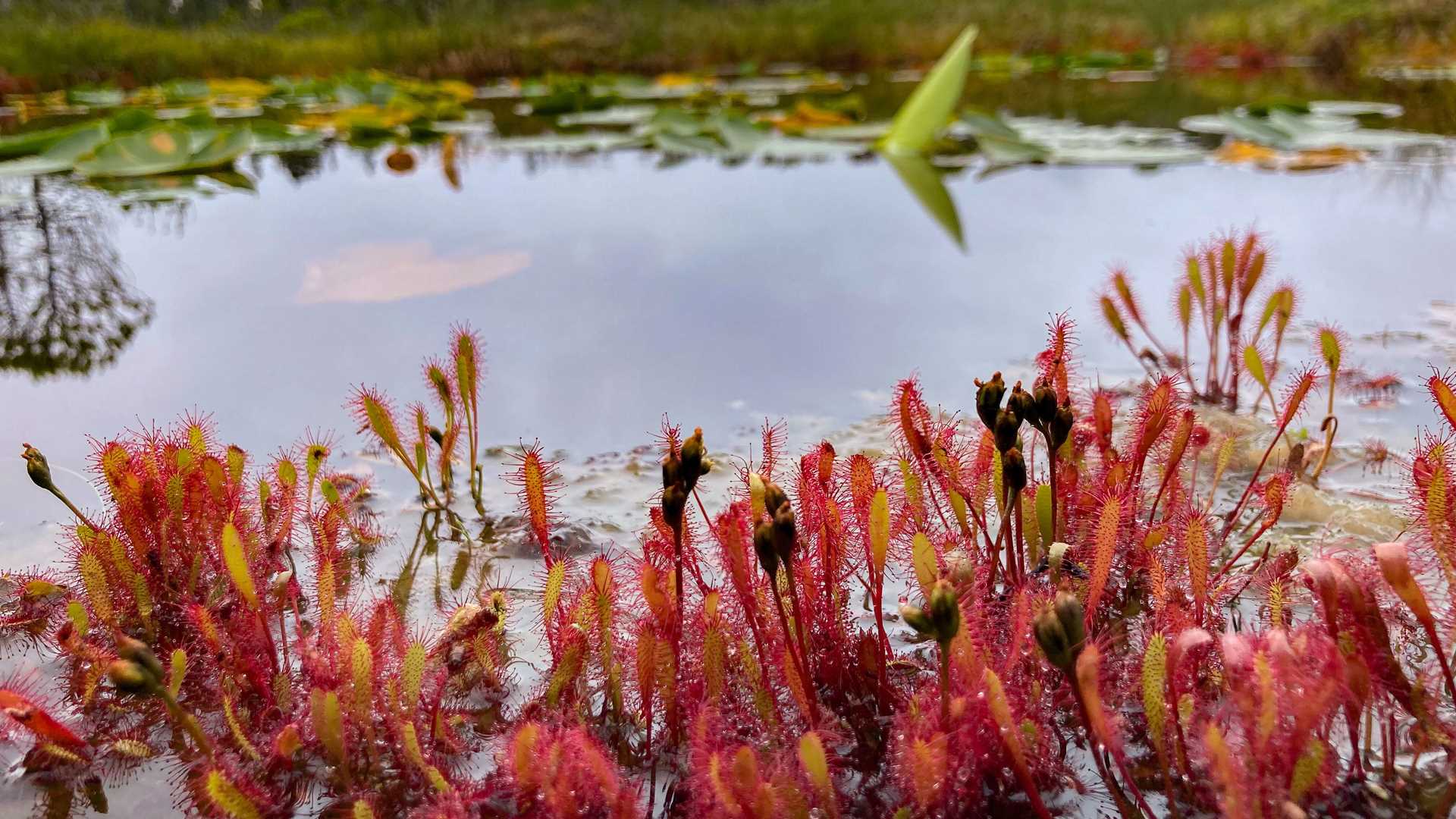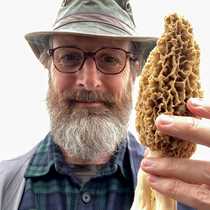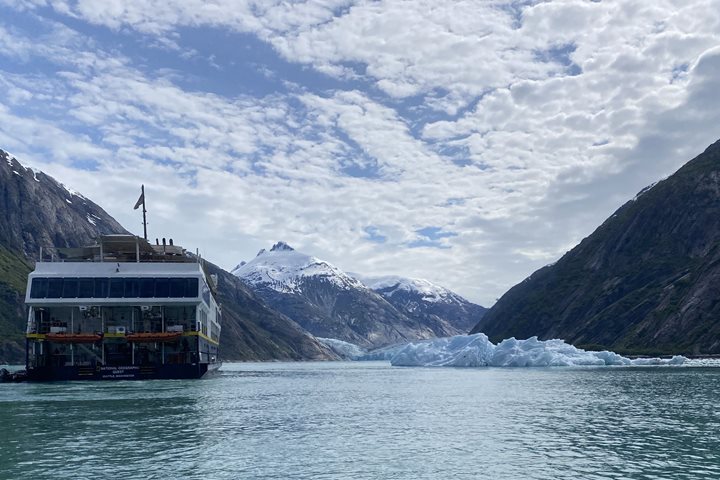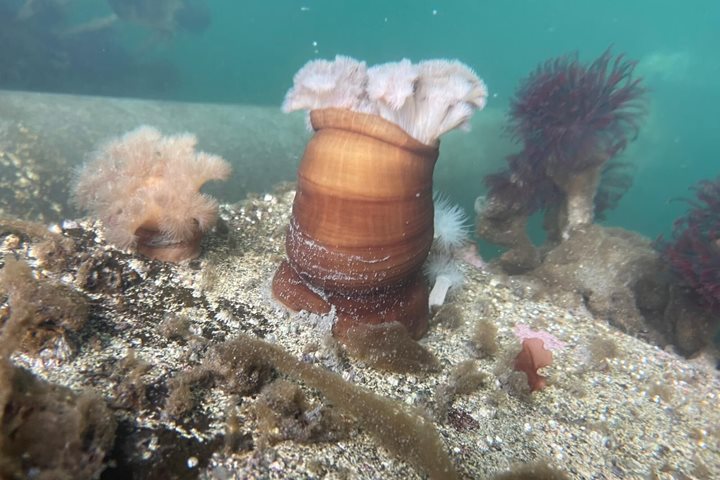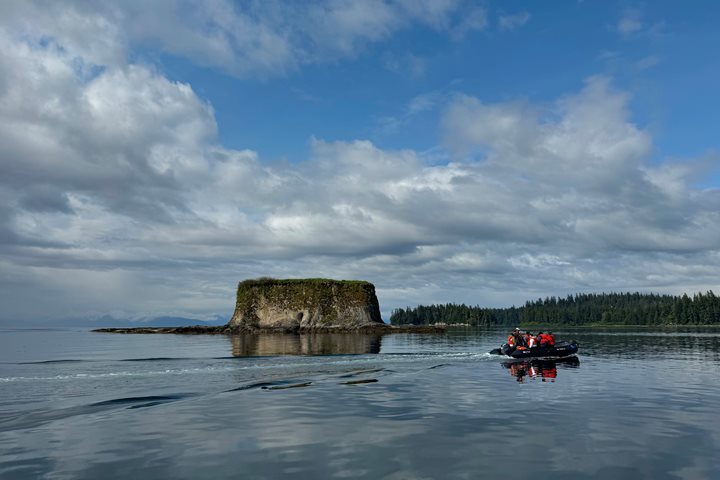We sat down on the edge of the muskeg, an open landscape covered in soft, spongey mosses accented by scraggly shore pines and ankle-high blueberry bushes. Here and there were flooded potholes, some as small as a truck tire and others big enough to submerge a truck in, but all easily deep enough to slowly swallow a person and preserve them in the acidic, anaerobic muck. These murky sloughs were surrounded by tiny, alien-like carnivorous plants, their tiny, dew-dropped tentacles waiting for the unsuspecting fly to come too close.
Getting here was a challenge. The tangles of blueberry, false azalea, and devil’s club covering the steep hillside, crisscrossed with moss-covered logs, meant following a course that was often winding away from our destination, and frequently required crawling, climbing, and clawing. By the time we reached the open muskeg, we were soaked head to toe, out of breath, and exhausted.
For fifteen minutes, we did not speak, and for several of those minutes, nothing else spoke either. We were out of hearing range of any of the rest of our expedition members or boats, there were no planes in the sky, no sign of humans, not even a human trail or footprint. For a time, even the ravens silenced themselves so that all we could hear were our individual thoughts, breaths, and heartbeats.
Following our meditative break, we discussed the wildness of this place—the tensions between deer and wolf, and the endless concentric ripples their tenuous relationship makes that maintain the balance, enabling all other wild things to thrive in this remote, wild corner.
Humbled, and reminded of our potential impact, we moved as softly as we could around the fragile bog and back into the forest, where we followed twisting moose trails, waded the edges of tidal sloughs, swam from a pebbled beach, feasted on berries, slid into ravines, made our way over and around deadfall, and eventually emerged at our designated landing, smiling and ready for pickup.

